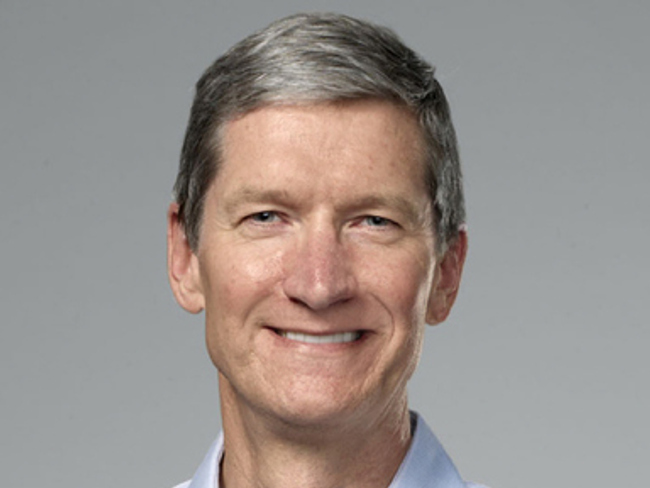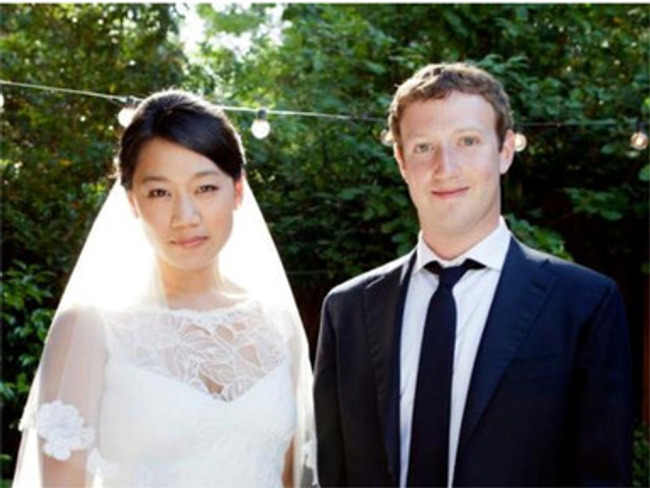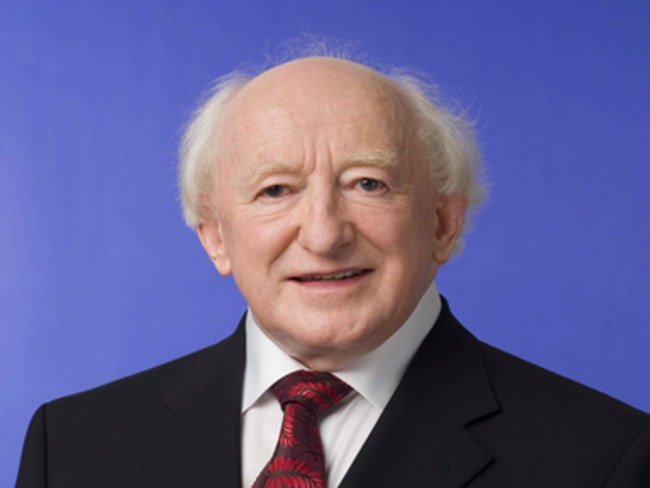US President Barack Obama hugs his wife Michelle in the most 'liked' photo in Facebook's history
We recall the top newsmakers of 2012, including Presidents Barack Obama and Michael D Higgins, tech industry leaders Tim Cook and Steve Ballmer, the 3D resurrection of Tupac Shakur and Felix Baumgartner’s leap from the edge of space.
Four more years: US President Barack Obama
“Four more years!” Those three words have gone down in Twitter history as the most retweeted words so far.
The US President marked the start of his second term in office with the tweet just moments after he was re-elected after a hotly contested election battle.
Obama’s tweet was retweeted more than 810,000 times and favourited by more than 300,000 people.
It was also the most ‘Liked’ image in Facebook’s history, with some 4.4m likes accrued by the time of writing.
Smooth operator: Apple CEO Tim Cook

Many feared that the death of Apple co-founder and visionary leader Steve Jobs would leave an enormous vacuum in the technology industry, never mind Apple itself.
Cook, who led the company many times during Jobs’ bouts of cancer treatment, assumed command of Apple in a quiet and dignified manner and the beginning of 2012 looked very much like business as usual at Apple. However, he showed the odd flourish, like attending media industry events and even granting TV and magazine interviews; activities Jobs avoided at all costs.
The company during 2012 launched a bevy of beautiful and powerful devices, including third- and fourth-generation iPads, the iPad mini and lighter and more powerful Macs, MacBook Pros, the iPhone 5 and a new family of iPod devices. It also unveiled its next-generation OS X Mountain Lion, as well as iOS 6 for mobile devices.
During 2013, Apple became the most valuable company in the world with a market cap of more than US$700bn, amassed a cash war chest in excess of US$97bn and in Q4 brought in revenues of US$36bn for the quarter and profits of US$6.6bn.
Not bad, you would say. An accomplished performance. But it hasn’t been smooth sailing, either. Cook has had to run the gauntlet of questions surrounding the treatment of workers at Foxconn plants in China, where products are produced.
When the debacle surrounding the Maps app on the new iOS 6 operating system came to light, Cook wasted no time in apologising.
Not long after this, a management reshuffle was instigated. Reading between the lines, it was a smart move by Cook, to make better use of the product and design talents of colleagues like Jony Ives and Eddie Cue to ensure the company continues to lead the technological vanguard and allowing him to focus on the difficult task of running one of the world’s most valuable companies.
The year 2012 came to a close with yet more speculation about whether Apple will release an actual TV set after Cook made comments on NBC about how he felt turning on a TV was like going back in time 20 or 30 years. Rumours have also surfaced about TV designs being trialled by the company. In addition, Cook is also spearheading a move that will see Apple bring manufacturing back to the US. All of this shows that in his own way, Cook can be just as much a showman as his late colleague and friend Steve Jobs.
One thing that won’t change is Apple’s culture of secrecy, so expect plenty of surprises in 2013.
Fate and destiny: Mark Zuckerberg

One of the most important events in Facebook founder Mark Zuckerberg’s life happened in 2012. He married longtime sweetheart Priscilla Chan. Another most important thing that happened in Zuckerberg’s life this year: his company had an IPO.
The Facebook IPO was touted to be one of the biggest in technology and the biggest in internet history, with a massive US$104bn valuation on the company. On 18 May, Zuckerberg, surrounded by Facebook brass at its Menlo Park, California, HQ, pressed a big buzzer and it was downhill from there.
Not only was there some kind of delay on the NASDAQ system that impacted the initial trading of shares, but at the end of the first week, Facebook shares had fallen 13.1pc and was labelled the worst IPO in a decade.
The good news for Facebook is that the decline of the share price from a low of less than US$20 (it was US$28 at the time of writing) has been stemmed and Zuckerberg and crew can get on, without too much distraction, with what they do best: developing products.
It has been an interesting year overall for Facebook under Zuckerberg’s leadership. In March, it acquired Instagram for an estimated US$1bn (turns out it was US$715m, according to post-IPO SEC filings), broke through the 1bn user milestone and started making revenues from mobile (estimated at 14pc of revenues). The company also launched a foray into selling apps with its own Apps Center and the company has more than 13m businesses engaged in using the platform to sell goods and services.
Following the code: James Whelton
While the Facebook IPO caught the world’s attention, a different but no less exciting revolution was already under way, having begun in Cork in 2011 when then-19-year-old James Whelton, along with internet entrepreneur Bill Liao, started up CoderDojo.
The year 2012 is not likely to be a year Whelton will forget any time soon. What started as a spark became an inferno as the CoderDojo movement spread fast around the world and by autumn of 2012 there were 104 dojos happening every Saturday afternoon (41 in Ireland) in cities from Dublin to Florence, and Tokyo, LA, New York, San Francisco, London and Chicago. New ones are sprouting up in Jamaica and Africa. On any given Saturday, an average of 6,000 kids between the ages of seven and 17 in Ireland and around the world are teaching each other how to write code.
The fledgling organisation held its first annual conference in Limerick and is razor-focused on spreading the coding revolution across the world. In Ireland, the vision is to have a CoderDojo in every parish.
Whelton’s efforts were recognised in October when, during the Dublin Web Summit, he was awarded the €100,000 Ashoka Fellowship; an honour shared with other visionary founders, like Jimmy Wales of Wikipedia.
Within days of that he was awarded €200,000 from Social Entrepreneurs Ireland. Whelton intends to put the combined €300,000 to good use and has formed his own foundation, the Hello World Foundation, which aims to help other tech initiatives and integrate them with the Irish education system.
To top it off a month later, he was named Internet Hero of the Year at the Eircom Spider Awards. And weeks later, the Irish Software Association named him and Liao ‘ISA Person of the Year’ for their work in furthering interest in software education.
When I caught up with Whelton at a CoderDojo event at Intel not long after all of this, he said he was hoping to avoid the public eye for awhile; can’t say I can blame him! But not long after that Whelton was listed with three other Irish men – John and Patrick Collison from Stripe and Jonathan Cloonan from GroupM – in the influential Forbes ’30 under 30′ listings. All in all, a great year of achievement for someone who is only 20.
SOPA and the Irish: Minister Sean Sherlock
While Whelton was sweeping up the accolades a fellow Corkman – Minister Sean Sherlock, TD – was in the unenviable position of signing off on an unpopular set of Statutory Instruments that amended Ireland’s Copyright Act 2000 to give judges in courts powers to grant injunctions against ISPs.
The changes to the copyright laws stemmed from a court victory by UPC more than a year earlier, when record labels failed to get an injunction forcing it to instigate a three-strikes policy.
The timing of the statutory instrument couldn’t have been worse for its proponents, as it coincided with the equally fiery debate surrounding the SOPA (Stop Online Piracy Act) tabled in the US. In the event the clamour surrounding SOPA resulted in a victory for the internet.
In Ireland’s case, nothing – not even an attack by the notorious Anonymous hacker group – it seemed would derail the eventual signing of the controversial statutory instrument in Ireland.
In fairness to Sherlock, he rolled with the punches and did what few Irish ministers would do in his situation, he attended a public forum on the matter and engaged in the debate in an open manner.
In the end, the statutory instrument was signed but with Sherlock promising a review of the Copyright Act 2000. As we close the door on 2012 and usher in 2013, ISPs like UPC, Vodafone, Digiweb, 3 and Imagine are currently embroiled in a court case led by the record labels aimed at blocking controversial torrent site The Pirate Bay. Will this be a test of the strength of what was derisively dubbed by opponents ‘Ireland’s SOPA’?
Fire in his belly: President Michael D Higgins

Despite the tweetgate drama that sullied the Irish Presidential elections in 2011, President Michael D Higgins’ position as the father of the Irish nation was assured this year from the most unlikely source, the internet.
You see, despite Higgins’ long pedigree in Irish politics and ability to write volumes of poetry, to most young people whose lives have been dominated by a recession not of their making he was something of an unknown quantity.
If you asked any 18-year-old who he was they’d reply that was a kindly old gentleman who wasn’t very tall and sounded posh and came from somewhere out West.
All of that changed in August, when our president became an overnight celebrity on YouTube over a two-year-old broadcast that surfaced in which he eviscerated a conservative US broadcaster called Michael Graham over issues like healthcare and foreign policy.
Higgins’ defence of Obama, as well as US blue-collar workers, was something to behold and overnight it attracted 1.2m views on YouTube.
“Be proud to be a decent American rather than just a w****r whipping up fear,” he told Graham in a voice trembling with anger but soaring with the righteousness of his case.
The video is still something of a hit, with some 1.8m views recorded so far. In August, young Irish people had learned that we had a president with fire in his belly. And by God, we were proud.
From the edge of space: Felix Baumgartner
The year 2012 was made all the more fascinating when in October Austrian skydiver and BASE jumper Felix Baumgartner completed a freefall of more than 39,000 metres (128,000 feet) and broke three world records in the process.
The entire event unfolded live online via YouTube. Baumgartner took more than two-and-half hours to ascend to 39,044m (128,097 feet) in what was the world’s highest manned balloon flight.
He then leapt from the capsule that carried him to the edge of space, completing not only the highest freefall on record but also the world’s fastest freefall, reaching 1,137km/h. The freefall lasted four minutes and 19 seconds, and Baumgartner reached terra firma in just nine minutes and 3 seconds following the jump.
Back from the dead: Tupac
Long-dead rapper Tupac Shakur returned to the living in an awesome display of tech trickery and showbiz magic in April.
A hologram of the deceased rapper awed crowds by performing with rapper Snoop Dogg at the Coachella Valley Music & Arts Festival in the US.
Snoop Dogg joined the hologram of Tupac for a duet and the hologram appeared to interact with Snoop Dogg. The hologram of Tupac then bowed to the crowd and faded into white light at the end of the set.
The performance shocked the audience and Tupac’s holographic appearance soon became a trending topic on Twitter. The hip-hop star died in 1996 after being shot four times at age 25.
The regulator: Alex Chisholm
Although much hasn’t been seen of Alex Chisholm, chairman of Ireland’s communications watchdog ComReg, it doesn’t mean he wasn’t there. Behind the scenes, Chisholm worked quietly and diligently to set in train Ireland’s 4G spectrum auctions and you have to admit it has been something of a masterpiece.
Chisholm succeeded in delivering a result that not only are the various telecoms operators seemingly delighted with, but one that netted an €856.6m windfall for the Irish exchequer, no doubt delighting the financially beleaguered Irish State.
In 2013, Chisholm’s mettle will be tested as the shine off 4G could be tarnished as a new regulatory chapter begins in terms of VDSL and regulating superfast broadband.
I wonder does Chisholm play poker?
Reviving Eircom: Herb Hribar
In June, Eircom exited examinership with new capital and shareholders in place. The examinership process removed €1.7bn worth of debt from Eircom’s balance sheet. In October, the company revealed plans to cut 2,000 workers within two years.
When Eircom exited the examinership process, it said it would be embarking on a five-year business plan that would include a €1bn home-fibre broadband rollout.
Spearheading the revival of what should be a jewel in Ireland’s infrastructural crown is CEO Herb Hribar, a seasoned telecoms executive who left Eircom in 2004 but has returned to help set things straight.
Hribar will be a man to watch in 2013 in terms of Eircom’s fibre rollout, its adoption of 4G services and interestingly, the onset of quad play services that Hribar insists will enable it to compete aggressively against UPC in urban markets. Keep an eye on this man.
From the sublime to the surreal: John McAfee’s odyssey
The nature of the characters that have made the tech industry what it is went from the sublime to the surreal in the final weeks of 2012 as John McAfee, the Silicon Valley entrepreneur who built McAfee, went on the run in Belize following the death of a neighbour.
While not officially a suspect in the murder of Gregory Faull, McAfee is nevertheless a ‘person of interest’ to the authorities in Belize.
McAfee went on the lam and brought journalists from Vice Magazine with him, recording his every thought and action in a blog. This proved to be his undoing and file information contained in one of the journalist’s photos of McAfee led to his arrest in Guatemala for illegal entry.
McAfee has so far evaded extradition to Belize – where he claims his life is in danger and he alleges the powers there wish to extort money from him – and is now ensconced in a hotel room in Miami from where he intends to fight his case in the new year.